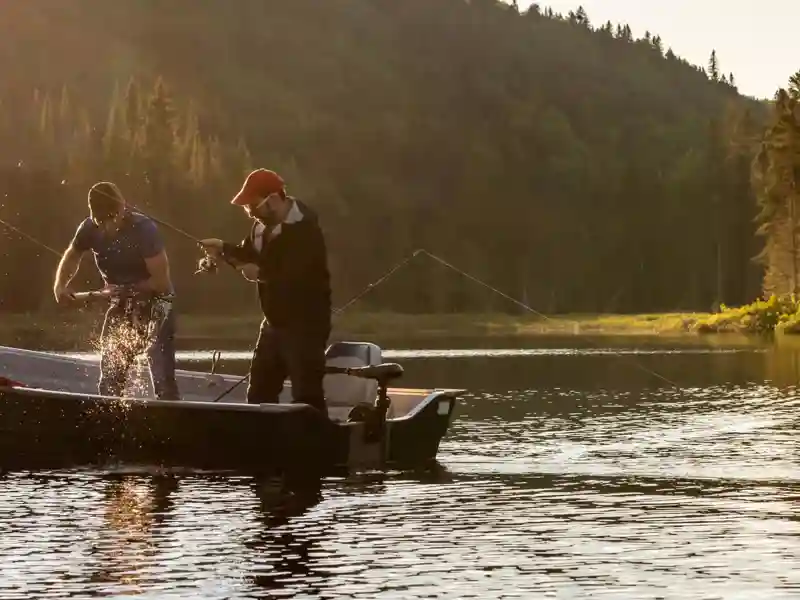
The good news is that people are getting back outside. The bad news: outdoor recreation is not happening at the same levels as last year.
As travel across the country slowed to nearly a halt in the spring of 2020, the summer months did not bring much relief for outfitters, lodges and guided tour companies. Forced to limit group sizes or find workarounds that accommodate physical distancing recommendations, some organizations struggled to keep their businesses up and running at a time when life had come to a halt.
It is not as though travelers are not seeking the outdoors. States across the country were reporting spikes in sales of both hunting and fishing licenses. Not that the interest lasted: in Minnesota, for example, sales of fishing licenses were up 48% in late April, but since have flattened, with the total sales for the year just 10% over last year’s total.
That seems to be the bright spot in the outdoor sports market, particularly with hunting. Hunting licenses have increased significantly across much of the country. However, that does little to alleviate the pain felt by outdoor sports and hunting service providers, who have seen business drop significantly due to the pandemic and travel-related concerns.
As if that weren’t enough, some of these same providers in western states are facing a threat of another kind: wildfires. As of late October, wildfires blazed from as far south as Tucson, Arizona, to outside of Everett, Washington. In fact, fires in Idaho, Colorado, Utah and throughout the western seaboard have created a particularly difficult challenge for the industry: road closures and site closures.
Fires that started in the summer caused quite a few road closures through the normally busy months of July and August. Road closures have caused detours that are unmanageable — some detours adding up to four hours to travel time.
Unfortunately, there are few signs of reprieve. With over 624,000 acres of active wildfires at the end of October 2020’ , many recreational areas have either been damaged or cut off from outside access. In an atmosphere in which hunting, fishing and outdoor recreation group sizes have already been decreased as a result of the pandemic, providers and lodges are struggling to stay in business. Without customers, who lack easy access to their sites and facilities, many are unable to continue their seasons.
Saving The Season
Fortunately, business income loss and expenses from such closures are often covered under a business income and expense policy. Should a business have to close temporarily due to fire, the policy would reimburse the business for income lost or predicted to have been earned subject to policy terms and conditions. Depending on the policy, this can include rent, payroll and utilities as the property is sitting idle or damages are being repaired.
Should a property sustain damage, business interruption insurance may also cover income lost in the event that business is suspended due to physical loss or damage. Interruption of services could be natural disasters, power or phone disruptions, or technology failures. These policies go beyond standard property coverage, which does not trigger unless property damage occurs.
As the outdoor sports and recreation industry faces extraordinary challenges, some of that pain stemming from lost tourism dollars can be alleviated. NFP recommends a review of your insurance policies to determine if the coverage you have in place can protect your business from loss of income should circumstances keep travelers away. Protection now can mean peace of mind later, and can keep the doors open for a future generation of travelers.
Explore all our hospitality and leisure industry insurance products.